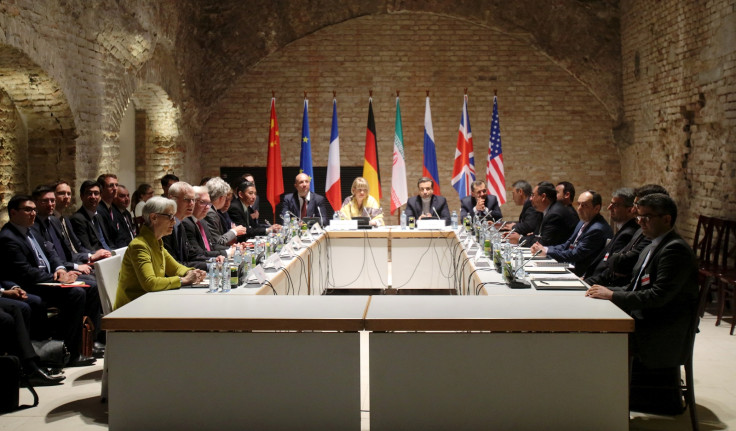Sceptic West and reluctant Iran set to begin nuclear talks as deadline looms

Iran and world powers are yet again coming together to hold key talks over Tehran's contentious nuclear programme with both sides conceding major holes are to be plugged to seal a deal.
Stakes are high to pin down a deal in the Austrian capital Vienna as the self-imposed deadline expires on 30 June.
"It is true that progress has been made and that the gaps have been filled in a large part of the text of a final agreement. But the gaps that remain all involve issues of substantial and essential divergence," an Iranian source, who is close to the delegation, told the semi-official IRNA.
US Secretary of State John Kerry is poised to arrive in Vienna shortly while Iranian foreign minister Mohammad Javad Zarif, who heads the delegation, will reach the Austrian city tomorrow, 27 June. Other leaders are also expected to flock the city over the weekend.
The P5+1 powers – the US, Britain, France, China, Russia, and Germany – are chasing Iran to hammer out a deal to limit its nuclear programme in exchange for lifting some of the economic sanctions.
Following the Iranian Supreme Leader Ayatollah Ali Khamenei's recent remarks hinting his country will give little leeway during the negotiations, it was obediently echoed by other Iranian authorities.
"If the opposite [negotiating] side makes no excessive demands, the deal will be attainable," said Iranian President Hassan Rohani.
Khamenei, who enjoys the ultimate power in Iranian political affairs, earlier said: "All Iranian authorities, while insisting on [Iran's] red lines, are pursuing a good deal [with P5+1 powers], which is a fair and honourable agreement in line with Iran's interests."
"All financial and economic sanctions imposed by the UN Security Council, the US Congress or the US government should be lifted immediately when we sign a nuclear agreement."
Despite ominous signs that the deadline would most likely to be missed, authorities have expressed some hope.
"It may be that the Iranians will not fill out the full measure of what was agreed on in Lausanne, in which case, there will not be an agreement," said Kerry, who added that the Khamenei's remarks are aimed at "domestic political consumption".
Some sticky issues between Iran and the P5+1 are allowing the UN officials to inspect Iran's military sites, timetable for lifting the sanctions on Iran, and curbing Iran's efforts on nuclear research in the future.
© Copyright IBTimes 2025. All rights reserved.






















